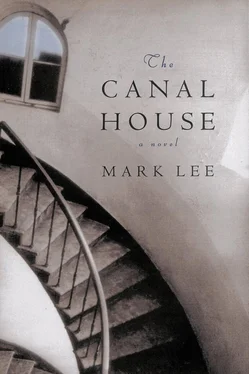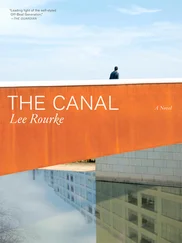Daniel tried to talk about the plane crash but became frustrated when he couldn’t explain what had happened to him. “Why was I the one who survived?” he asked. “What’s the explanation?”
He waited, expecting some kind of pronouncement, but Father Lokali didn’t answer him.
“So? What do you think?”
“I think you’ll have to figure this out on your own.”
“You probably believe that it’s all because of God.”
“We are his creation, but I don’t expect others to feel the same way.”
“I don’t believe in God or religion. The whole thing doesn’t make sense.”
“Before I became a priest, I was in love with my cousin, Hannah. And, of course, I loved my parents and they loved me.” Father Lokali stood in the middle of the room and smiled. “To love another—simply, purely—gives us a small glimpse of what it means to love God. We make up reasons in our mind to love a person. We say, ‘She’s very pretty’ or ‘He speaks well.’ But it’s all nonsense, of course. There’s an impulse within us, a movement in our heart, that pushes away the questions and simply wants to be. To believe in God is to become a lover.”
A little boy entered the room and spoke briefly. Father Lokali nodded and the child went away. “It’s time for me to go.”
“May I come with you?”
“If you wish.”
Daniel and the priest walked across the dirt courtyard, where women were serving beef stew and cassava. Several children were holding two or three bowls in their arms. They carried the food back to family members who were too weak to line up for supper.
“How many of these children have AIDS?”
“I can’t tell you exactly. Probably about a third of them.”
“And they’ll die in a few years?”
Father Lokali stopped near a dormitory that was painted sunflower yellow. “Yes, they’re all going to die. Unless an inexpensive cure is discovered and someone pays to have it brought to Uganda.”
“How are you able to believe in God?”
Father Lokali smiled. “How are you able not to?”
“If God exists, then why does he let all these people suffer?”
“Ahhh yes, the pain-and-misery question. A healthy, white American is going to tell me how terrible life is.”
“You can’t deny it.”
“I know all about misery, Mr. McFarland. I’m an expert on the subject. For example, there is a horrible rumor in this country that you can get rid of AIDS by sleeping with a virgin. Some of these little girls were raped and infected when they were seven or eight years old. And that’s just one particular evil. Poverty and sickness is everywhere. I see it every day. And yet, even in the worst situation, when there is no reason to care for anyone but oneself, I have encountered love and faith and sacrifice. Why waste your time trying to prove, once again, that the world is a dangerous place? Of course life is dangerous and cruel. A more interesting question is, Why does compassion always assert itself? Why does it always survive?”
They entered the yellow building, a long, narrow room divided into four sections with blankets hanging from ropes. A young woman lay unconscious on a straw mat in the northern corner of the room. There was an ugly rash on her neck, and her body was so bony and slight that she reminded Daniel of the marble skeletons placed on some of the Renaissance tombs in Rome.
Ann squatted beside the patient and waved a palm-leaf fan to keep the flies away. When she saw Father Lokali, she went over to a shelf and picked up a plastic box. She took out a purple cotton stole with crosses embroidered on the ends and draped it around the priest’s neck. Father Lokali opened a small cylinder of holy oil and knelt beside the young woman. He dabbed the oil on her forehead and prayed, then anointed her hands and prayed again.
When Lokali was finished, he leaned over the woman, almost like a lover, and whispered something in her ear. The woman’s eyelids fluttered open and she gazed up at the ceiling. Her pupils were black and very large, as if she had just stepped out of a dark room. Her eyelids closed again. Lokali whispered a third prayer. A few minutes later, the woman’s body relaxed and seemed to grow heavier. Daniel could see it become an empty vessel, no longer filled with life.
Father Lokali stood up and handed the stole to Ann. While he visited the other patients in the dormitory, Daniel went outside. The sun had set ten minutes ago, but the sky was filled with light. Strips of pink and orange glowed on the horizon, and every tree seemed like a distinct creation.
Father Lokali left the dormitory and approached him. “Her name was Mary Bukoba. She worked as a prostitute in Masindi. A very hard life. When she first came here, she taught the children a funny song about a man who got drunk and married a crocodile. I can still hear some of them singing it when they walk around the mission.”
“How can you stay here? Don’t you get tired?”
Father Lokali ignored the question. “You’re a lucky man, Mr. McFarland. It’s movie night. We only do this once a week.”
They returned to the dirt courtyard as it began to get darker. Thousands of stars appeared in the sky and a three-quarter moon glowed brightly above them. While the patients and their families set up benches and chairs in the courtyard, Father Lokali explained that the Canadian embassy had given the mission an old television and a VCR. During the last few years, they had acquired three videos: The Little Mermaid , a Hong Kong martial arts film called Fists of Fury , and a British instructional tape, Training Your Dog .
“ Training Your Dog is the favorite by far,” said Father Lokali. “That’s tonight’s movie.”
The weakest patients were placed on straw mats and someone would sit behind them, holding the patients’ upper bodies in their laps. Other patients used rattan chairs or sat on the benches. Daniel squeezed himself onto the bench closest to the television, wondering how they were going to run the gear without electricity.
When everyone was settled, a young woman, a man in his thirties, and a fourteen-year-old boy walked into the courtyard carrying a bicycle attached to a small power generator. Everyone applauded after they connected the generator to the television and the VCR, and the boy made a mocking bow.
The young woman was the strongest and healthiest person at the mission. She had broad shoulders and an enormous head of hair. It was her job to power the bike, creating enough electricity to run the television. She climbed onto the seat, hitched up her tight skirt, and began to pedal furiously.
The video played without sound. First you met seven dog owners and their pets at what looked like a British community center. The trainer, a formidable-looking woman who wore gray tweed, taught the dogs basic commands: heel, walk, run, stay. Periodically the camera would cut to one of the owners’ houses where the trainer would solve different problems with their pet.
The man in his thirties spoke English and provided the voices for the trainer and the owners. He had decided that the trainer talked like a crazed drill sergeant and all the owners were idiots. The fourteen-year-old boy, who had the cocky smile of a class clown, had come up with seven different voices for the dogs. Each dog seemed to be motivated by one of the deadly sins, such as sloth, gluttony, and lust.
Daniel had watched famous comedians at nightclubs and in the movies, but he had never seen anything funnier than the two performers at Boma Mission. Many of their routines had evolved over the last year and Daniel was told that new material had been developed for that night’s show. The conversation between a sexually starved Pekinese, who liked to rip furniture, and his plump owner was so hilarious that one of the patients fell out of his chair laughing. When the owners and their dogs ran around in a circle at the community center, the mission comedians improvised appropriate comments as each pair trotted past the camera.
Читать дальше












